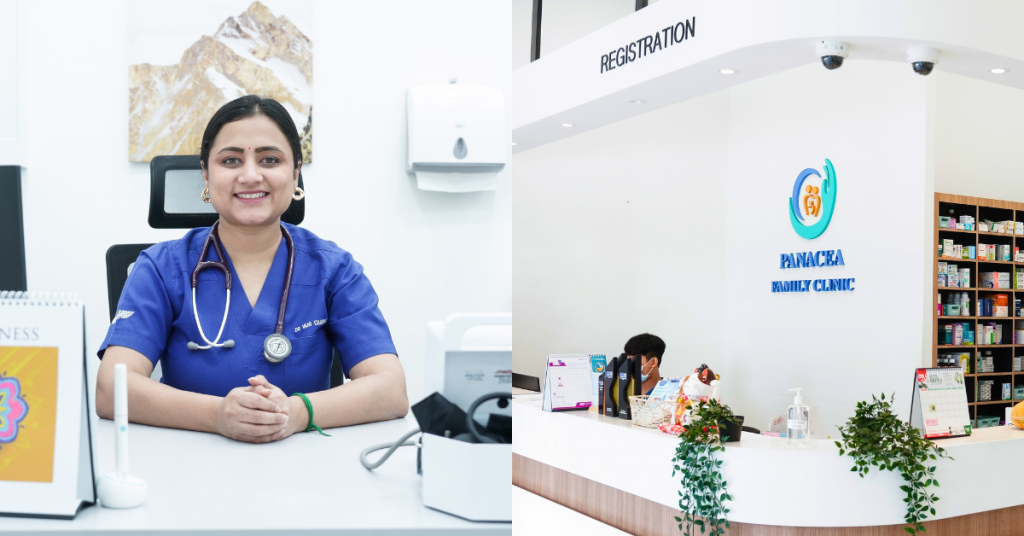[Written in partnership with Panacea Family Clinic, but the editorial team had full control over the content.]
Growing up, you probably had a clinic near your home that was your go-to spot for anything medical. Such was the case for Dr Gokilavani Sekar Chandran, who goes by Dr Vani.
Hailing from Segambut, Dr Vani’s family never had any university graduates, much less a medical one. But groomed by her parents, who valued education above all else, she ended up pursuing medicine.
Beyond that, though, she was also highly inspired by her family doctor.
“I loved his style of practice,” she shared. “He was one of those doctors where you instantly felt better after just seeing him, as he had impeccable communication skills.”
After all, being a good doctor is not just about being smart. Empathy and communication skills are also paramount.
That’s why these are values that are integral to Dr Vani’s own practice, Panacea Family Clinic (Panacea).
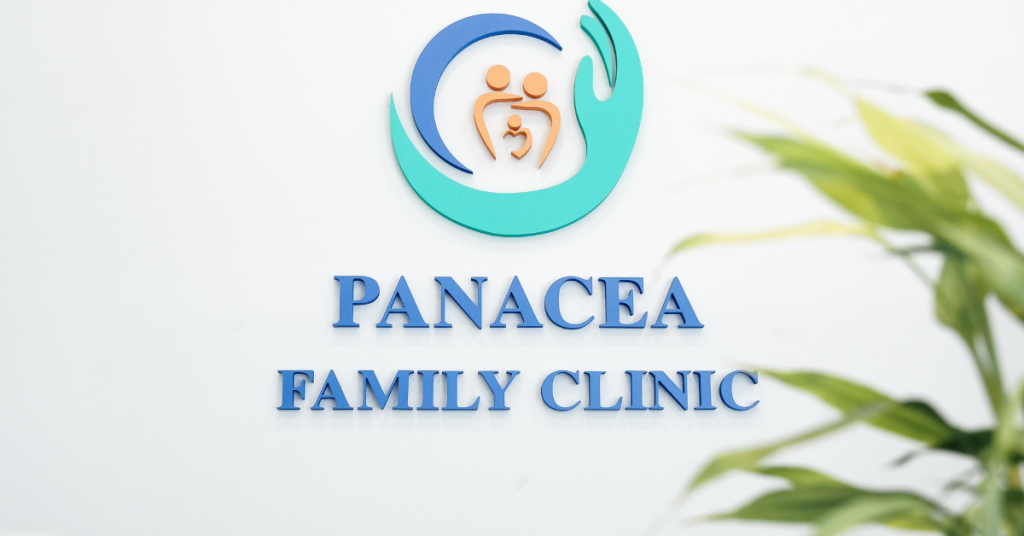
Starting at the primary level
During her medical school training in New Zealand, Dr Vani learnt that health outcomes are directly related to health determinants such as socioeconomic status, health-seeking behaviours, health beliefs, lifestyle, and access to healthcare.
The best place to address all the issues and ultimately improve community health outcomes is by work carried out at the primary care level.
“This was the key motivation for me to pursue my career as a primary care physician,” she told Vulcan Post.
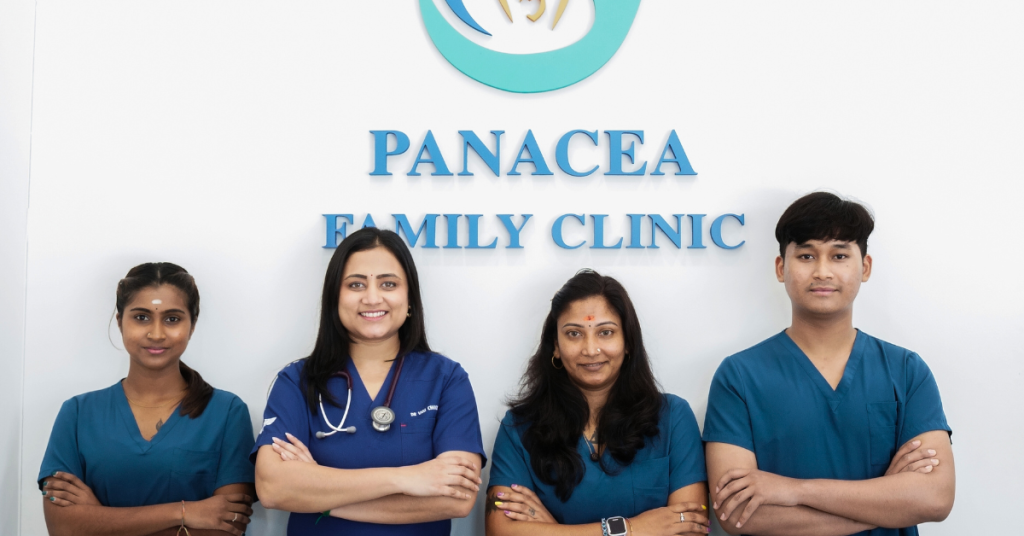
After a stint in New Zealand, Dr Vani returned home to be closer to family in 2018. She then spent two years as an internal medicine medical officer at University Malaya Medical Centre.
“Once I had my firstborn, I transitioned into a private general practice setting as I felt I was ready to go back to primary care practice which I have always been passionate about,” she said.
Being passionate about it, Dr Vani spent a lot of time learning the landscape of private primary care in Malaysia. She noticed that there was a gap between private and government settings here.
“Having worked and trained in a system where the difference in health outcome can be directly linked to efficient primary care services, I realised instantly I needed to set up my own practice so that I can deliver the type of care I envision for my community,” she said.
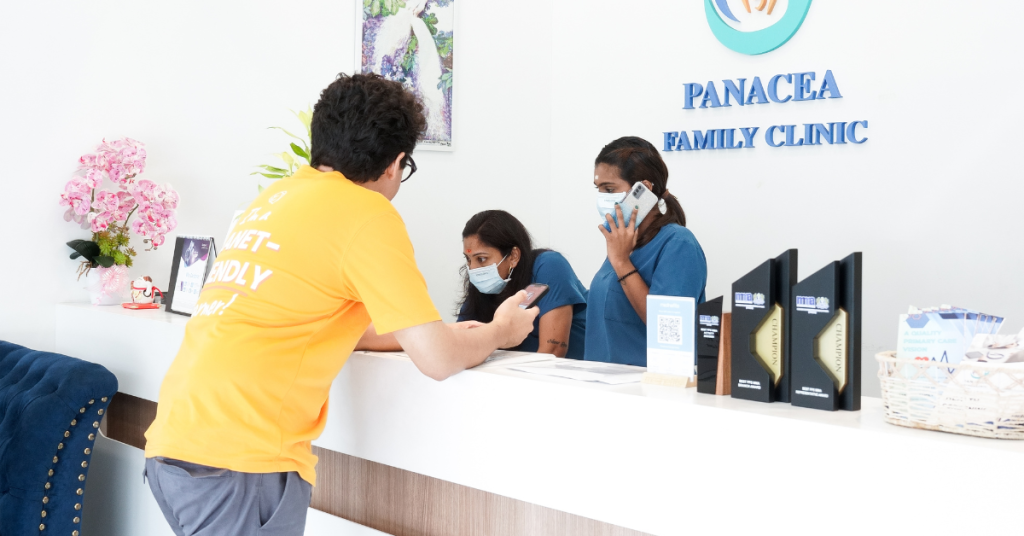
She wanted it to be a place where the whole family’s health can be prioritised and meaningful differences can be made.
That’s why the clinic is called Panacea, a word that means a solution or remedy for all difficulties or diseases.
From early pregnancy to geriatric care
When pregnant with her first child, Dr Vani experienced severe nausea and vomiting, requiring frequent medical attention. When her baby was born, she suffered from colic.
“Throughout this period I realised that an ideal clinic for a young family is one that is family-centric, value-based, and a place where my family can get quality and empathetic care,” she explained.
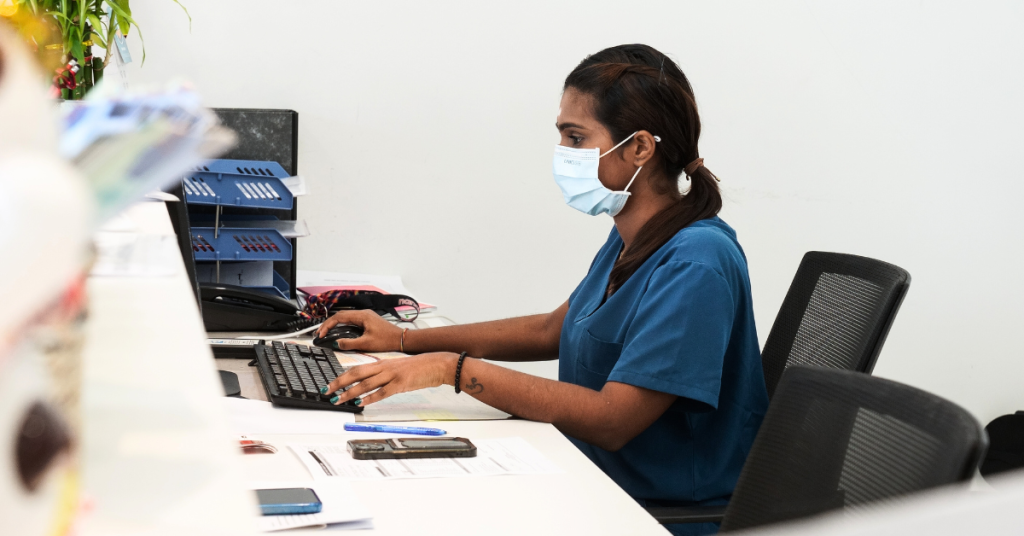
As such, Panacea Family Clinic is designed to be a one-stop centre, caring for the needs of all ages.
The clinic’s services range from early pregnancy care to postpartum care for both mother and baby, including breastfeeding and early childhood vaccinations.
Building upon that, Panacea also provides comprehensive medical checkups to detect non-communicable diseases as well as geriatric care.
The clinic is staffed with experienced female doctors who have both international and local healthcare setting experience. Dr Vani is joined by Dr Aida, who studied with her at the University of Auckland. There are also five support staff including a clinic manager, clinic assistants, and a radiographer.

Panacea is fully equipped with rapid diagnostics including the latest models of ultrasound, a digital X-ray system, equipment for full blood analyses, and full blood profiles including kidney function, liver function, diabetes, and cholesterol studies. Rapid tests for respiratory viruses are also available.
“Early and accurate diagnosis ensures early treatment and hospitalisations can be avoided which in turn reduces total cost of healthcare in the long run,” Dr Vani said about the range of equipment.
“By strengthening diagnosis at the primary care level, we are aiming to improve overall community health outcomes—we can help to reduce congestion at hospital settings.”
Improving health literacy
But what makes Panacea different from the countless other clinics available? Well, aside from empathy, the clinic also prides itself on education.
Early on in Dr Vani’s career, she realised that the most crucial aspect of improving patient health outcomes lies in improved patients’ understanding of their health and illness.
“In Malaysia, we have varied healthcare beliefs and cultural beliefs that have a strong influence on health-related practices,” she pointed out. “I noticed a lack of patients understanding or awareness of common medical illnesses.”

She understood that education is key for patients to empower their health journey so that they can make better-informed choices regarding their lifestyle and treatment plans.
That’s why patient education is key at Panacea.
“Our health literacy initiative starts from our consultation room,” Dr Vani said. “By ensuring we give detailed explanations to patients with regards to their condition, we ensure they receive appropriate counselling regarding their medications at the dispensary.”
Beyond that, the team also produces educational videos to be shared on social media. Dr Vani also regularly appears on mainstream television and radio, from the Astro Vanakkam Doctor Show to Minnal FM, to provide regular health education to the community.
Panacea also has an open communication policy whereby patients can WhatsApp them to ask about various health-related questions.
Bringing quality healthcare to all
All these efforts don’t come cheap. Dr Vani pointed out that running a clinic in KL is expensive to begin with, and operation costs are only rising.
“The private GP fee schedule has not been reviewed by the government over the last two decades,” she explained. “Hence, with the rising cost of medical devices, medications, and operations including staff salary and rental, the toughest challenge has been running the clinic as a solo practitioner.”
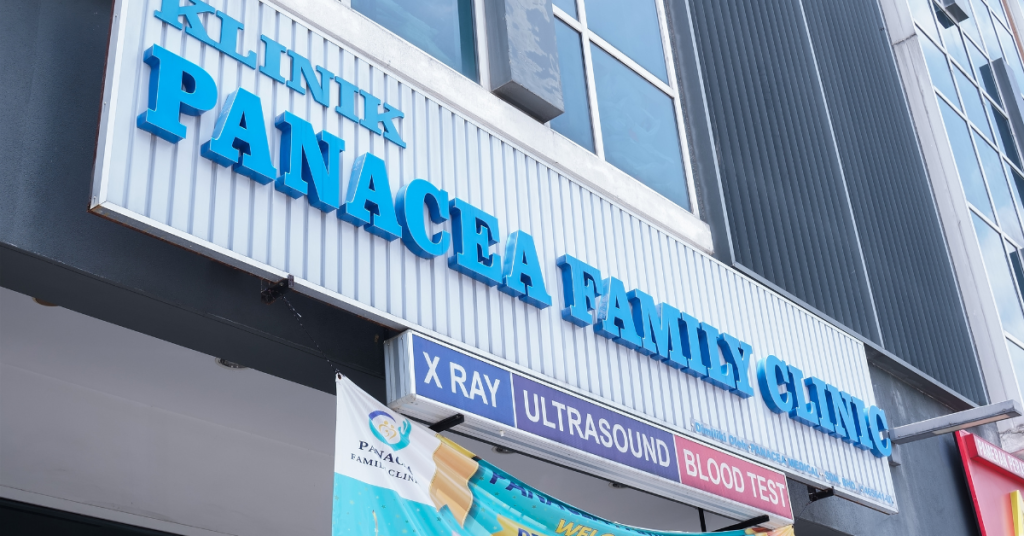
Despite the challenges, the Panacea team frequently celebrate their wins. Dr Vani said that the biggest win so far has been being able to have more than 10,000 patient encounters in less than two years.
Looking ahead, Panacea aims to expand their services to include more outreach and corporate wellbeing programmes. Beyond that, they also hope to set up two more clinics by 2025.
“Our seven-year plan is to have seven clinic branches with employment opportunities for over 50 staff,” she shared.
These clinics will continue Panacea’s core values of excellence, empathy, and of course, education.
- Learn more about Panacea Family Clinic here.
- Read other articles we’ve written about Malaysian startups here.
Featured Image Credit: Panacea Family Clinic


